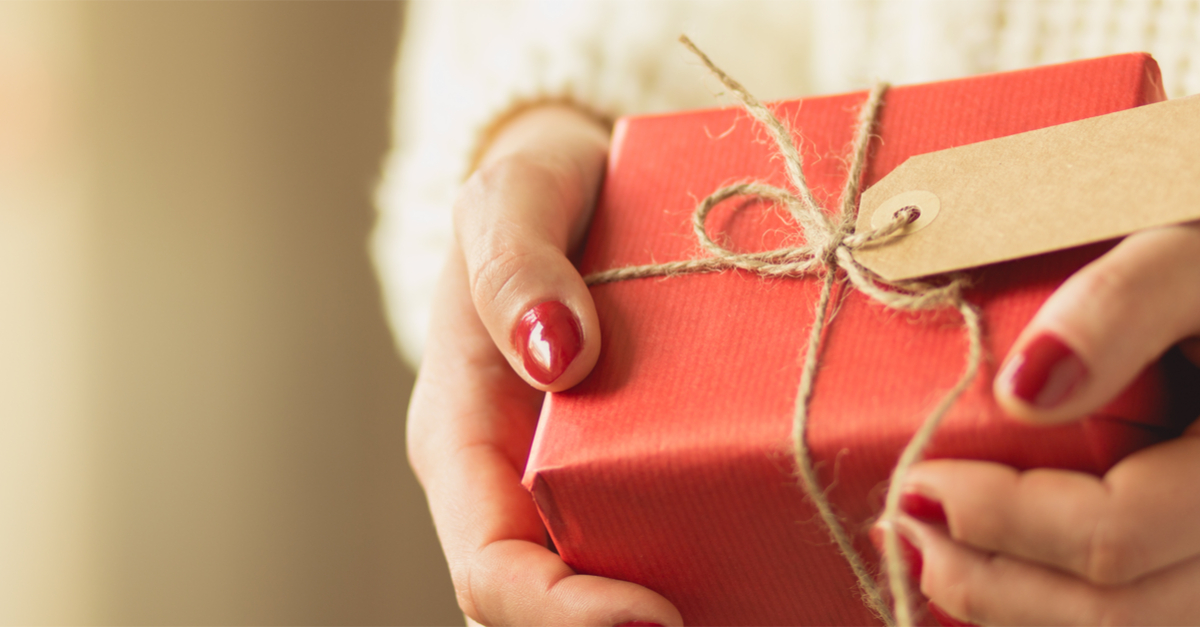The Psychology of Gift Giving

With the holiday season upon us, many of us will make some decisions regarding gift-giving and where we stand on the subject. Part of this comes from trying to decide if we need to cut back on spending during the holidays. It is certainly something to think about because not only does gift-giving have an impact on the budget, but shopping during the holidays can be less than pleasurable. Frustration can set in when dealing with the traffic, the crowds, and the consumerism that seems over the top. It is only natural to really think about whether gift-giving is really making the point that we want to make. Is our gift-giving really speaking for what we have in our hearts and want to convey?
I come from a family of gift-givers. Growing up with it, I loved getting the gifts and loved buying the gifts. I have reflected on this over the years thinking perhaps it is sometimes just too much, taking the meaning out of the season. But even when we decide to cut back, I gravitate to buying gifts. Perhaps in an effort to justify spending (or not spending) or at least really looking at the value in gift-giving, I decided to do some research on the psychology of gift giving with some surprising results.
Psychologists, anthropologists, economists and others who have studied the phenomenon of gift-giving admit that there is not a simple answer to this. In fact, gift-giving helps to define relationships and strengthen bonds with family and friends. Ellen J. Langer, a Harvard psychology professor, makes the point that deciding to do away with the gift-giving practice may actually set people up to miss out on important connections with family and friends. Allowing others to buy you a gift is allowing them to “think about you” and about the things you like. Blocking people from doing this for you is a disservice to them. Gift-giving reinforces our feelings for others and helps us feel effective and caring. (Parker-Pope, 2007) When you decide to give someone a gift, you are spending time thinking about that person. It is empowering for the person buying the gift. It is good for the giver’s self-esteem. The giver learns more about the person which enhances the relationship. And the giver feels effective and capable of caring. This is all good for the relationship.
This comes from the perspective of mindful gifting: really taking the time to consider what would the perfect gift be for that person. Actually choosing to spend less for a gift or making a gift would put mindfulness in the forefront. Being creative in your choices because you are on a budget requires more thought. And obviously, making a gift would enhance all of this even more. However, this is not true for mindless buying and giving for others. If you are buying the gift because you have to and checking it off as you grab something off the shelf, then gift-giving has no value. The benefits of gift-giving come when you are mindfully finding the perfect gift. (NPR, 2008) Then the giver becomes the receiver.
So perhaps the answer is to find some balance in gift-giving. This would mean assessing the budget and what can be managed for the holiday season. Then make a list of who will be recipients of gifts, deciding what can be spent, and thinking about what the perfect gift is for a particular person. Set the budget and stick to it. It doesn’t have to be a costly gift to let someone know they mean something to you. Rather it is the process that matters. Perhaps after setting the budget, a new-found freedom will come from getting creative and only spending what was planned to give the perfect gift.
Works Cited
NPR. (2008, December 23). NPR. The Psychological Benefits of Gift-Giving . Boston, MA.
Parker-Pope, T. (2007, December 11). A Gift that Gives Right Back? The Giving Itself. Retrieved October 5, 2011, from www.nytimes.com.
Tags: Gift Giving, psychology of gift giving
ABOUT THE AUTHOR

Janie Pfeifer Watson
Licensed Independent Clinical Social Worker
Licensed Independent Mental Health Practitioner- Janie Pfeifer Watson, LICSW, is the founder and director of Wholeness Healing Center, a mental health practice in Grand Island, Nebraska with remote sites in Broken Bow and Kearney. Her expertise encompasses a broad range of areas, including depression, anxiety, attachment and bonding, coaching, couples work, mindfulness, trauma, and grief. She views therapy as an opportunity to learn more about yourself as you step more into being your authentic self. From her perspective this is part of the spiritual journey; on this journey, she serves as a mirror for her clients as they get to know themselves—and, ultimately, to love themselves.
LATEST ARTICLES BY Janie Pfeifer Watson
- Letting Life Unfold – Embracing the Musical Nature of Existence
- Silence Good for the Brain and for your Mental Health
- Mastering Resilience: How to Manage your Response to Challenging Situations
- Celebrating 25 Years of Business A Journey Marked by Resilience, Growth, and the Power of Community
- COVID-19 – Heightened Mental Health Awareness and Employer Appreciation
Subscribe today
Sign up to receive the latest mental health tips and inspiration